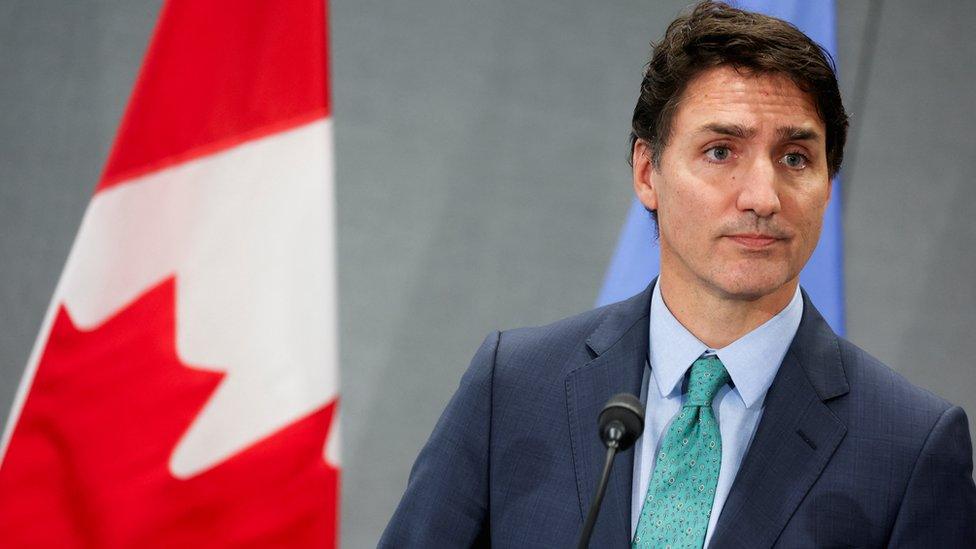India-Canada tensions: Punjabi hip-hop stars hit by row over Sikh separatism
- Published
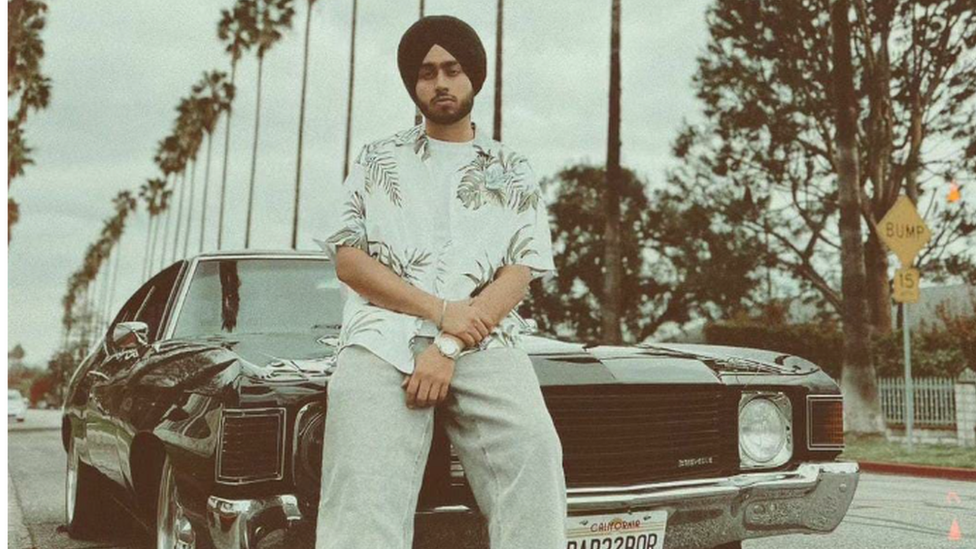
Rapper Shubh's India tour was cancelled recently
Last month, popular Punjabi rapper Shubhneet Singh's forthcoming India tour was cancelled after tensions erupted between India and Canada.
The reason was a controversy that broke out over an old social media post where he had shared an incorrect map of India. The Canada-based singer (known to fans as Shubh) was accused of supporting the demand for Khalistan, or a separate Sikh homeland - a sensitive topic in India, which saw a violent insurgency over the movement in the 1980s.
Canada has the largest population of Sikhs outside India's Punjab state, and is home to popular Punjabi diaspora musicians who divide their time between the two countries - touring, producing or simply visiting India, where they have a massive fanbase.
So the diplomatic row - sparked by Canadian Prime Minister Justin Trudeau saying his country was investigating "credible allegations" that could link the Indian government to the murder of a Sikh separatist leader - has worried musicians who call both countries home. (India has denied the allegations and stopped issuing visas to Canadian citizens.)
Shubh, for instance, asked people to "refrain from naming every Punjabi as a separatist or anti-national", but he still faces criticism and some Indian cricketers - including former captain Virat Kohli, who once called Shubh his "favourite artiste" - have unfollowed him on social media. Another Indo-Canadian rapper AP Dhillon, who has millions of fans, also faced boycott calls on social media after he posted about musicians having to "second and triple guess our every move" after Shubh's concert was cancelled.
Both Shubh and Dhillon are among a crop of young hip-hop musicians in Canada who have taken the Punjabi music industry by storm over the past decade. Their songs - with chords steeped in funk, hip-hop and hard rock, along with Punjabi lyrics and imagery - speak to both the Sikh diaspora as well as a broader audience, and often top international music charts. Earlier this year, actor-singer Diljit Dosanjh became the first Punjabi to perform at popular California music festival Coachella.
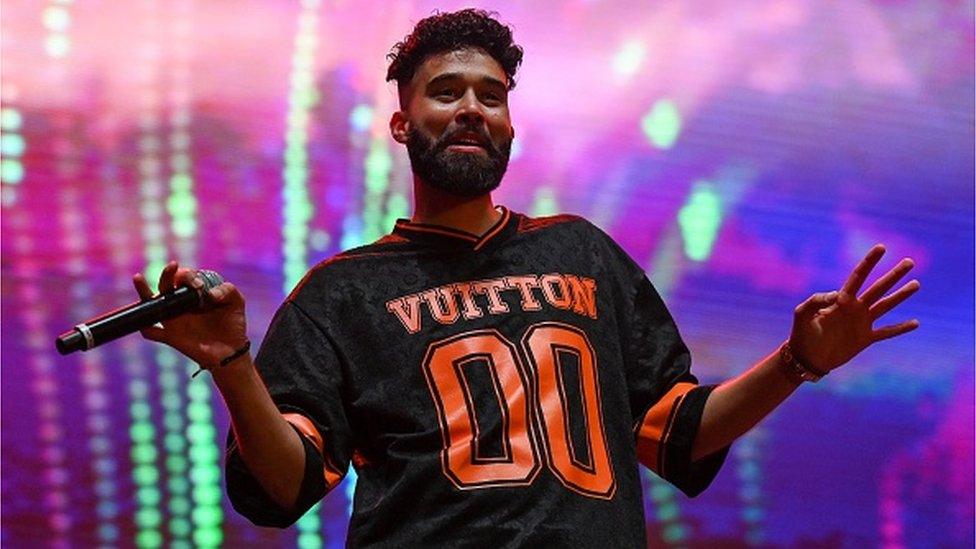
Indian-Canadian rapper AP Dhillon has millions of fans
Industry experts and participants are closely watching the row between Delhi and Ottawa - analysts say ties are now at an all-time low.
"Whenever countries get into conflict, whether it's soft or hard, one of the things which gets affected is cultural trade, as we have seen with our neighbour Pakistan," says Nirmika Singh, former executive editor of Rolling Stone India, who now runs a talent management company.
Cultural collaborations between Indian and Pakistani musicians and filmmakers have stopped over the few past years.
Some, however, think that the Punjabi music industry - both in India and Canada - is far too big to be affected.
"Whatever is happening is purely political and a living relic of today's cancel culture," says Punjabi songwriter Pali Gidderbaha.
"Listeners don't care about what happens on a diplomatic level - all they want is a good melody and entertainment. And Punjabi music always delivers."
Numbers seem to back this. In 2022, four of the 10 most-streamed songs in India were Punjabi and included tracks by Indo-Canadian rappers such as Dhillon and Gurinder Gill, according to streaming platform Spotify. That's impressive - and part of a larger shift - in India, where Bollywood songs traditionally dominated music charts.
The nature of popular Punjabi music itself has been influenced by the dual cultures it is situated in.
In the 1980s and 90s, Punjabi folk singers such as Amar Singh Chamkila were hugely popular among Sikhs in Canada. Musicians like Daler Mehndi also routinely toured the country.
As the community grew, a newer generation began mixing modern hip-hop sounds with elements of traditional Punjabi music.
Many also used music to spotlight political issues, highlight their identity and bemoan religious violence.
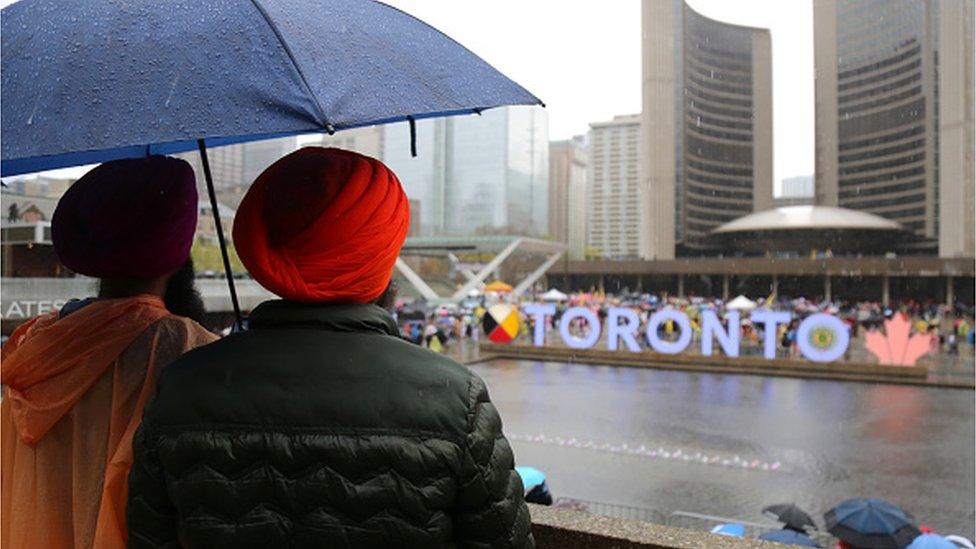
Sikhs make up 2% of Canada's population
But critics have accused some Punjabi musicians of glamourising violence and propagating hedonism. Rapper Sidhu Moose Wala - who was murdered last year - often made headlines for songs which touched upon Sikh militancy and were accused of glorifying gun culture.
Experts say that some of the hard talk comes from the vocabulary of hip-hop itself.
"Hip-hop is the music of resistance. It has been remarked upon as a vehicle for socio-political and economic realities of Black Americans, as well as a vehicle for satire regarding disparities in America," say academics Harjeet Grewal and Sara Grewal who are working on a book that explores Sikh hip-hop in the global diaspora.
For Punjabis who grew up abroad, music is also an important medium to reflect on their identity.
In Canada, the number of Sikhs surged in the 1970s when the Khalistan movement began gaining ground in India. The immigrants and their children not only had to build new lives, but also deal with racism and distrust.
Many hip-hoppers use their songs to talk about these experiences and how, in the language of the streets, they hustled their way up.
In the video of Dhillon's hit song Brown Munde, he and other rappers are shown doing blue-collar jobs - working as mechanics, in a food delivery kitchen and at construction sites.
"An artist can connect with their inherited culture while also expressing lived experiences of racism and discrimination. The same music is also used to express joy and satire," the Grewals say.
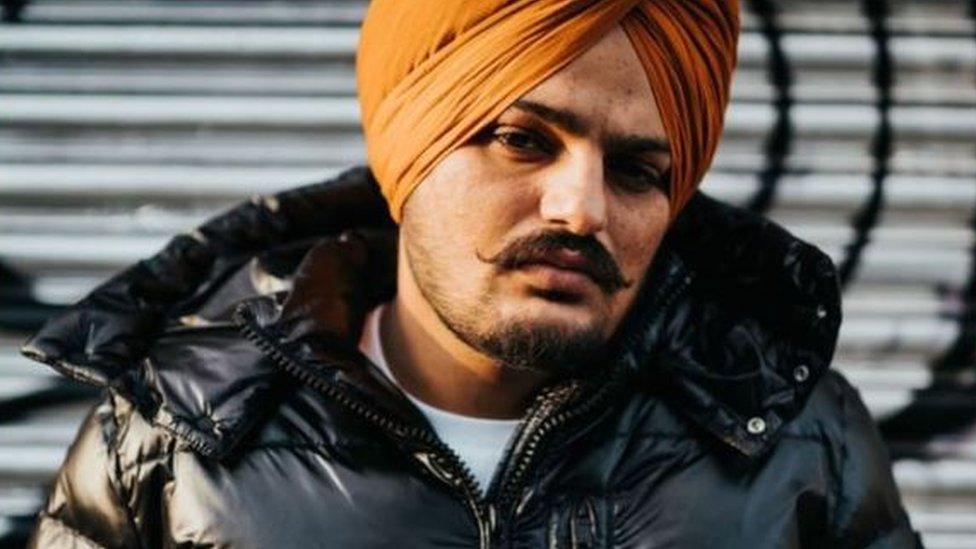
Moose Wala's murder shocked fans across the world
Canada-based cinematographers Rupen Bhardwaj and Sukaran Pathak, who have worked with artists like Dosanjh and Moose Wala, say the music attempts to show the darker, harsher realities of urban life.
For an outsider, this may seem confrontational and provocative - but the music brings together Punjabis who may have "allowed their geographic distance from home to lead to estrangement", the duo add.
However, Sumail Singh Sidhu, a historian of radical Punjabi intellectual tradition, says that some of the incendiary content could also be a result of the "alienation" young Punjabis face in a foreign country.
"Instead of having an organic connection with the Canadian society, a lot of the people are just thrown in at a young age, making them vulnerable to a sanitised and linear understanding of being Sikh," he says, adding that wanting to "belong somewhere" might snare them "in a persecution complex".
Ms Singh says that "personal becomes the professional" in hip-hop, putting musicians in a difficult spot.
But she adds that it's also important for them to be aware of political issues.
"During episodes of high political tensions, a lot of reason and rationality is suspended and people get provoked by everything. So artistes need to be sensitive in dealing with the situation."
BBC News India is now on YouTube. Click here, external to subscribe and watch our documentaries, explainers and features.

Read more India stories from the BBC:

- Published25 September 2023
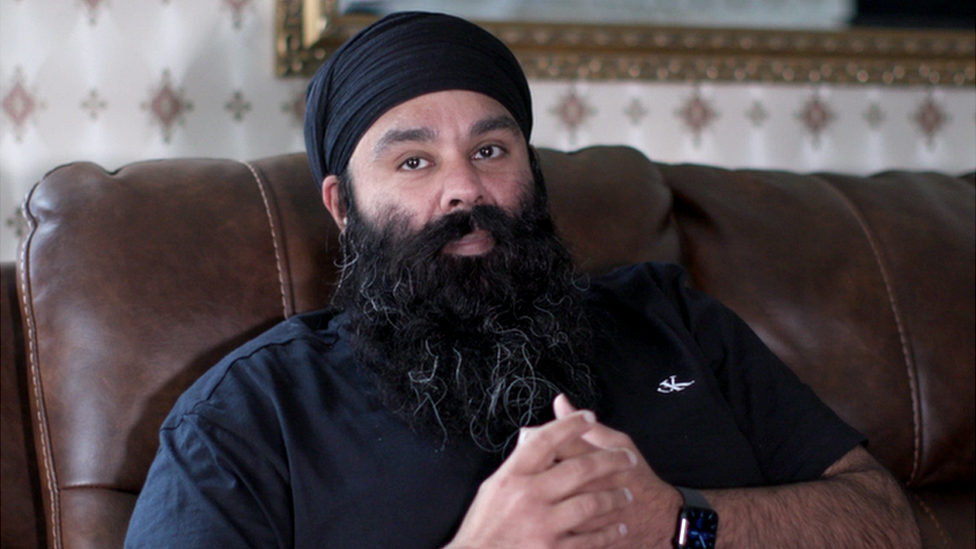
- Published24 September 2023
